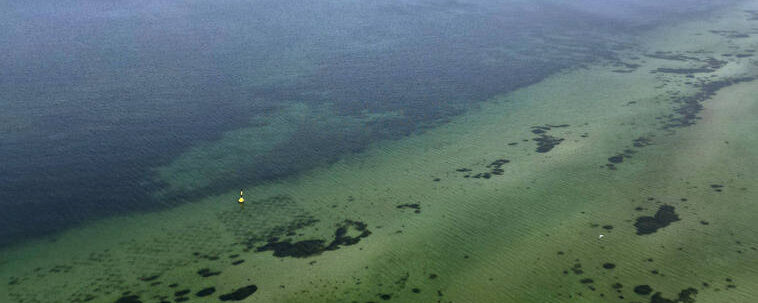The 56% of the oceans are greener than twenty years ago as a consequence of climate change.
It has always been undeniable that the color of the oceans is blue. However, this could change in the coming years due to climate change. There is a possibility that in the future, the new generations will paint the seas green.
According to an article published in the journal ‘Nature,’ scientists from the Massachusetts Institute of Technology (MIT) and the National Oceanography Centre in the United Kingdom reveal that the effects of climate change are directly affecting the microbial ecosystems on the sea surface, influencing its hue. Scientists cannot determine precisely the changes these ecosystems are undergoing or the significance of these modifications in water pigmentation. Nonetheless, they know that these alterations are a direct consequence of human activity. Over the last 20 years, the color of 56% of the world’s oceans has shifted towards a more greenish tone. While this transformation is virtually imperceptible to the human eye, it is of real importance and will continue to occur.
The studies conducted relied on data obtained between 2002 and 2022 by the Moderate Resolution Imaging Spectroradiometer located on a NASA satellite called ‘Aqua.’ The observed changes not only affect the color of the seas but also the lives they harbor. Green waters are a reflection of the presence of ecosystems, mostly phytoplankton, laden with a green pigment called chlorophyll. The alterations occur in these biological communities, responsible for capturing CO2 from the atmosphere and serving as food for many living organisms.
Scientists warn about the seriousness of these variations, as they will have more than just a visual impact. The food chain will be affected, as well as the amount of carbon dioxide absorbed by the seawater. Dutkiewicz, a researcher from MIT, warns that this is just one example of all the transformations occurring in the oceans due to climate change, and that “many of the long-term consequences are impossible to predict.”



